Politics
AMBODE GRANTS SCHOLARSHIP, N5MILLION CASH REWARD TO BEST LASU GRADUATING STUDENT …Says 6000 Capacity Hostel, Senate Building, Other Projects On Course …Attends 22nd Convocation Ceremony
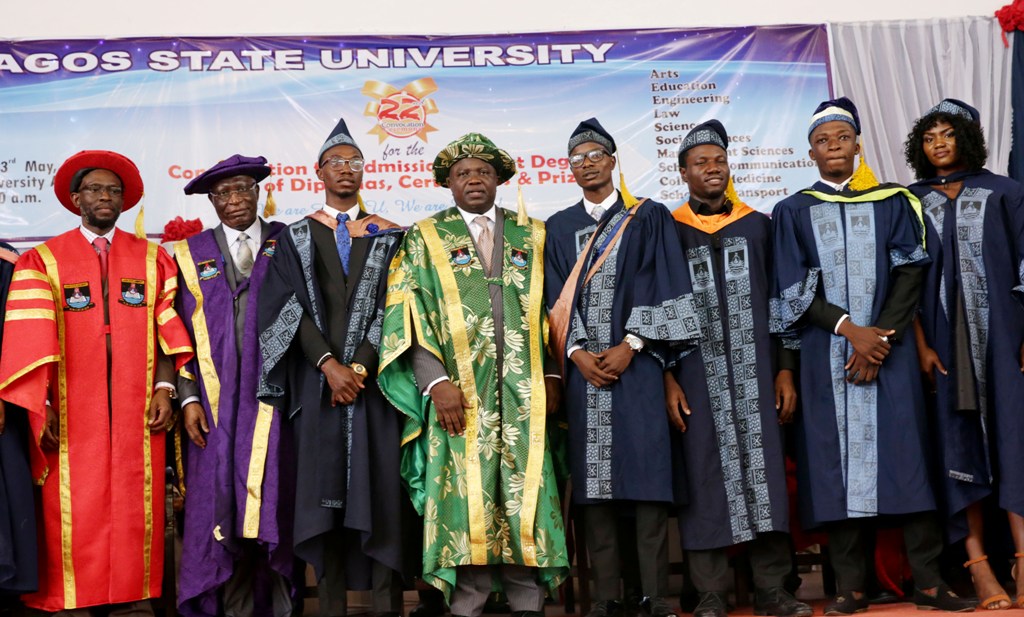
It was an emotional laden moment filled with joy, excitement and sense of fulfillment when Lagos State Governor, Mr Akinwunmi on Wednesday granted scholarship and N5million cash reward to the overall best graduating student of Lagos State University (LASU), Ogunsanya Fuhad Adetoro.
Adetoro, who is of the Faculty of Management Sciences, was announced as the best graduating student at the 22nd convocation ceremony held at the Auditorium Complex of the University in Ojo having scored CGPA 4.78.
Responding to Adetoro’s request for scholarship to go for masters’ study outside the country, Governor Ambode said he would personally finance the student’s education in any university of his choice anywhere in the world.
“In response to the best graduating student’s request, Lagos State Government does not generally give scholarship anymore but only bursary. So, I adopt him.
“His story is too compelling and it reflects on my own story. So, any university he wants to go, I will do it personally; I will be responsible.
“In addition to that, because he is the best graduating student, I dash him N5million,” Governor Ambode said.
The Governor said occasions such as university convocation deserved necessary attention as the future of any nation could only be guaranteed when its youths, who form a majority of the population, are educated enough to contribute to the economy and the continued sustenance of the country.
Recalling the pledge to construct 6000 capacity hostel for the institution, Governor Ambode said it was gratifying to report that preliminary works had already been concluded on the project, while work would start in few months, adding that other ongoing projects in the university were on course and would also be delivered on schedule.
“Already, preliminary works on the Six Thousand (6,000) capacity hostel for the University which we promised last year have been concluded and in the next few weeks, construction would start.
“In addition, the Government’s Legacy Projects in the University including the New Senate Building, the Ultra-Modern Library, Students’ Arcade, LASU Homs (Staff Quarters) and the New Faculty of Management Sciences Buildings are all nearing completion simultaneously,” the Governor said, adding that the projects, when completed, would change the entire overview of the landscape of the University.
While alluding to the fact that provision of qualitative education was a cardinal duty which government must render to its people, the Governor said such necessitated the 12.07 per cent allocation for education in the total 2018 Budget of the State, saying the education of the teeming youths remained a priority for his administration.
“Our State has always been a trailblazer in various spheres of life and in order to consolidate on the economic gains made so far, the education of our youth is paramount.
“We seek the cooperation of all Lagosians to ensure we eradicate illiteracy in the State, groom the next generation of leaders and captains of industry as well as position our State as the standard bearer for the nation in the provision of qualitative tertiary education,” the Governor said.
Besides, Governor Ambode said he was encouraged by the successes so far recorded through Ready.Set.Work (RSW), an initiative of the State Government targeted at equipping penultimate and final year students of public tertiary institutions in the State with employability and entrepreneurship skills.
He said: “The feedback we get from the Corporate World is that with adequate and proper mentoring, our graduates can stand toe-to-toe with their colleagues from anywhere across the globe.
“These success stories are a huge motivation for us to increase the scope of this initiative to accommodate more of our students as we have resolved to make every succeeding year of the programme bigger and better than the previous edition.”
While lauding LASU management, staff and students for the feats recorded by the institution, Governor Ambode assured of continuous support in ensuring accreditation of courses and completion of all ongoing projects in the University.
“On our part, as Government, we will support the University in the Accreditation of its various programmes and courses. We will work with the University to ensure that all our facilities and personnel meet the required standards for accreditation because we understand that the rating and sustenance of the University is hinged on the Accreditation of its programmes by the National Universities Commission and other bodies with such responsibilities,” he said.
In his opening remarks, Chancellor of LASU, Justice Adesola Oguntade (Rtd) lauded Governor Ambode for the RSW initiative introduced by the present administration in the State, saying it was gratifying that the scheme keeps getting bigger and better.
He said the initiative had turned out to be a game changer in the lives of students, adding: “It is rapidly changing the thinking of students from being job seekers after school to job producers even while in school.”
Besides, Oguntade charged the graduands to make integrity their watchword, broaden knowledge by reading very well, be bold to take risk and never be afraid of failure, just as he urged them to strive to create a better world for incoming generations.
Also, LASU Vice Chancellor, Professor Olanrewaju Fagbohun said the graduands have been found worthy in learning and character, saying they have been adequately schooled to contribute to the development of the country.
He said due to reforms put in place, the institution ranked first among state universities in the 2018 maiden edition of National Universities Commission (NUC) ranking, while LASU was also selected by NUC as lead institution for the development of blueprints on how to ensure health security by 2050 and blueprint for transportation in Nigeria.
He lauded Governor Ambode for the various initiatives designed to promote education in the State and projects executed in LASU especially the RSW through which over 1500 students of the institution had been trained in employability and entrepreneurship skills and Code Lagos programme, among others.
A total of 29,710 students graduated with 201 awarded diploma; 21,481 first degrees; 7982 Post Graduate Diploma (PGD); and 46 Doctorate Degrees. In all, 26 students graduated with first class.
news
Journalists for Good Governance Shines Searchlight on Local Government Administration

Journalists for Good Governance Shines Searchlight on Local Government Administration
…Calls for Accountability in Nigeria’s Grassroots Governance
LAGOS, Nigeria — A civil society coalition known as Journalists for Good Governance(JGG) has intensified public debate on transparency and accountability within Nigeria’s local government system, urging media professionals, civil society actors, and citizens to hold grassroots leaders accountable.
Speaking an event in Lagos recently, the acting chairman of the society, Comrade Bunmi Obarotimi said that despite reforms such as the Supreme Court’s 2024 ruling granting financial autonomy to all 774 Local Government Areas (LGAs), systemic challenges continues to hinder effective service delivery and responsible stewardship of public funds.
“Local governments are the closest tier of government to the people — yet too often they remain the least transparent. Without civic oversight and vibrant media, promises of autonomy ring hollow.” the acting chairman said.
The Journalist for Good Governance emphasised crucial roles that journalists can play in uncovering discrepancies in council spending, flagging poor service delivery, and educating citizens on their rights. Their call comes amid wider efforts by media and civic organisations to bridge accountability gaps. The civil society initiatives had previously launched monitoring campaigns to track local government expenditures and have been quietly advocating for transparency in how public money is deployed.
The leaders of the Journalists for Good Governance (JGG) highlighted the importance of physical assessment and citizens engagement on projects to boost people’s confidence, urging local councils to adopt open data platforms and proactive information dissemination in compliance with the Freedom of Information Act. Experts say the majority of LGAs currently lack operational websites or digital portals, further limiting public scrutiny.
The Journalists for Good Governance initiative aligns with sustained advocacy by civil society groups and governance experts calling for a collective approach to strengthening democratic accountability, and has decided to engage in critical and holistic assessments of how Local Governments is being run and the impact and quality of projects they embark-on and to address deficits in transparency and public trust.
Meanwhile, some state governments have signalled support for improved community engagement. In Lagos State, authorities reiterated a commitment to enhancing community media platforms as vehicles for civic participation and accountability at the grassroots level.
The renewed spotlight on local government administration has reignited public debate over fiscal responsibility and priorities. Controversies such as the widely criticised Adamawa council chairmen’s wives trip to Istanbul — which drew public outrage for perceived misuse of public funds — underscore why watchdog groups say stronger oversight mechanisms are urgently needed at the grassroots.
Citizens and activists have welcomed the journalists’ initiative, calling for sustained media engagement that goes beyond headlines to influence policy and accountability reform.
The civic rights advocates note that real change will require robust legal frameworks, a free press, and empowered communities equipped to demand transparency at every level of governance.
As Journalists for Good Governance mobilises its members, the coming months are likely to see heightened media attention on grassroots administration — from council budgets and service delivery to the enforcement of public information laws and digital transparency initiatives.
Politics
Gov. Dauda Lawal commissions projects in Anka LGA, Commits to Sustainable Development

Gov. Dauda Lawal commissions projects in Anka LGA, Commits to Sustainable Development
The Executive Governor of Zamfara State, Dr. Dauda Lawal, has reiterated his administration’s steadfast commitment to guiding Zamfara State towards sustainable development by inaugurating and initiating a series of pivotal projects in the Anka Local Government Area.
Among the key undertakings announced are the comprehensive reconstruction and modernization of the Emir of Anka’s palace, signaling a revitalization of traditional leadership; the initiation of work on the crucial Anka–Abbare Road, which is expected to significantly improve connectivity; and the construction of a new Local Government Secretariat.
Additionally, the projects encompass the establishment of dedicated offices for the Hisbah Commission and the Community Protection Guards, alongside the reconstruction of the Safe School in Anka, emphasizing the administration’s focus on enhancing educational infrastructure.
During the commissioning event, Governor Lawal highlighted that these projects are a fulfillment of commitments made during his campaign, aimed at transforming the local landscape by improving infrastructure, stimulating economic growth, bolstering public service efficiency, and enhancing the capacities of security agencies. He called for a collective effort from the community to ensure proper maintenance of these facilities, underscoring the shared responsibility in preserving public assets.
Governor Lawal shared that similar projects have also been inaugurated in Tsafe, with plans for upcoming projects in Kaura Namoda, Moriki, Bungudu, Bukkuyum, and Zurmi, all expected to be completed and inaugurated by the year’s end. This ambitious timeline reflects the administration’s urgency in addressing the development needs of various regions within the state.
In his remarks, the governor urged residents and local traditional institutions to collaborate closely in maintaining the newly commissioned structures and supporting the overarching objectives of his administration. “I stand here in Anka today to honor our commitments to the people of Anka Local Government and all of Zamfara State. The official opening of the new palace for the ‘Sarkin Zamfaran Anka’ and the Zamfara State Council of Chiefs is a significant milestone that wraps up today’s agenda,” he stated.
Governor Lawal emphasized the strategic importance of the Anka–Abbare Road, describing it as a critical artery that will not only enhance access to remote areas but also stimulate economic activities and generate multiplier effects throughout the local economy. He articulated the necessity of providing a conducive work environment for civil servants, affirming that the new local government secretariat and dedicated offices will significantly contribute to strengthening law and order within the state.
“Education is the cornerstone of any thriving society. Our focused initiatives are oriented towards fostering a safe, secure, and supportive environment for our students. I am also proud to announce the completion and commissioning of the reconstructed SAFE School Anka today,” he remarked, reaffirming the administration’s dedication to education.
The governor further noted that the commissioning of the Emir’s Palace serves to restore the historical prominence of traditional institutions, which he regards as pivotal custodians of the region’s culture and heritage. He underlined the administration’s awareness of the invaluable role that these institutions play in fostering the state’s growth and emphasized the necessity of aligning development projects with cultural values.
In conclusion, the governor mentioned that after the successful commissioning in Anka and Tsafe, future projects in Kaura Namoda and Moriki will follow suit, while those in Bungudu, Bukkuyum, and Zurmi remain on track for completion and official commissioning before the year concludes.
news
GEN CHRISTOPHER GWABIN MUSA SUPPORT INITIATIVE HAILS GOVERNOR UBA SANI’S APPOINTMENT AS RENEWED HOPE AMBASSADOR
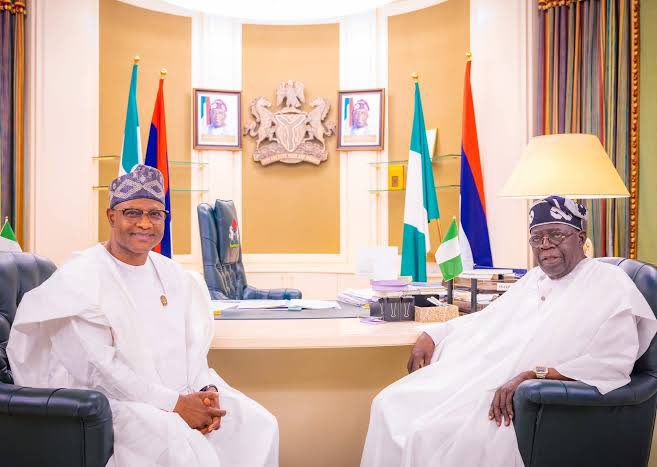
GEN CHRISTOPHER GWABIN MUSA SUPPORT INITIATIVE HAILS GOVERNOR UBA SANI’S APPOINTMENT AS RENEWED HOPE AMBASSADOR
The Gen Christopher Gwabin Musa Support Initiative (GCGMSI) has extended its warm congratulations to His Excellency, Mallam Uba Sani, the Executive Governor of Kaduna State, following his recent appointment as a Renewed Hope Ambassador and Deputy Director-General for Party Outreach, Engagement, and Mobilisation by the All Progressives Congress (APC).
This felicitation was formally conveyed in a statement signed by the Initiative’s Convener, Ibrahim Dahiru Danfulani, Sadaukin Garkuwan Keffi/Betara Biu, and disseminated to the press.
The statement highlighted that the Grand Patron of the GCGMSI, His Excellency General Christopher Gwabin Musa, OFR, Minister of Defence of the Federal Republic of Nigeria, received the news of the appointment with great pride but without surprise. According to the statement, General Musa expressed unwavering confidence in Governor Uba Sani’s proven capability and salient leadership qualities, affirming that the Governor is eminently equipped to deliver on every task entrusted to him.
The Grand Patron further extended profound appreciation to the President and Commander-in-Chief of the Armed Forces, His Excellency Asiwaju Bola Ahmed Tinubu, GCFR, for recognising and finding Governor Uba Sani worthy of this critical national assignment. The appointment, which takes effect immediately, was made by the President in his capacity as the leader of the APC, citing the Governor’s exceptional organisational abilities and strategic acumen.
In his new role, Governor Sani is tasked with working in close collaboration with the Director-General of the Renewed Hope Ambassadors and the party hierarchy, including the National Chairman of the APC. His primary mandate is to ensure harmony, inclusiveness, and strategic coordination across all levels of the party’s mobilization and engagement architecture, a vital function for advancing the political agenda.
Demonstrating its commitment to national service and effective governance, the GCGMSI, under the direct directive of its Grand Patron, General Musa, has officially mobilised its formidable structure. The Initiative has pledged the full deployment of its extensive network, seasoned personnel, and robust operational framework to assist and support Governor Uba Sani in the successful execution of his new responsibilities.
The Gen Christopher Gwabin Musa Support Initiative, renowned for its disciplined organisation, widespread grassroots penetration, and capacity for large-scale civic mobilisation, stands ready as a pivotal force. This move underscores the GCGMSI’s pivotal role as a key support system for national development initiatives and its unwavering dedication to fostering unity and progress under the Renewed Hope agenda.
-

 celebrity radar - gossips6 months ago
celebrity radar - gossips6 months agoWhy Babangida’s Hilltop Home Became Nigeria’s Political “Mecca”
-

 society6 months ago
society6 months agoPower is a Loan, Not a Possession: The Sacred Duty of Planting People
-

 society5 months ago
society5 months agoReligion: Africa’s Oldest Weapon of Enslavement and the Forgotten Truth
-

 news6 months ago
news6 months agoTHE APPOINTMENT OF WASIU AYINDE BY THE FEDERAL GOVERNMENT AS AN AMBASSADOR SOUNDS EMBARRASSING






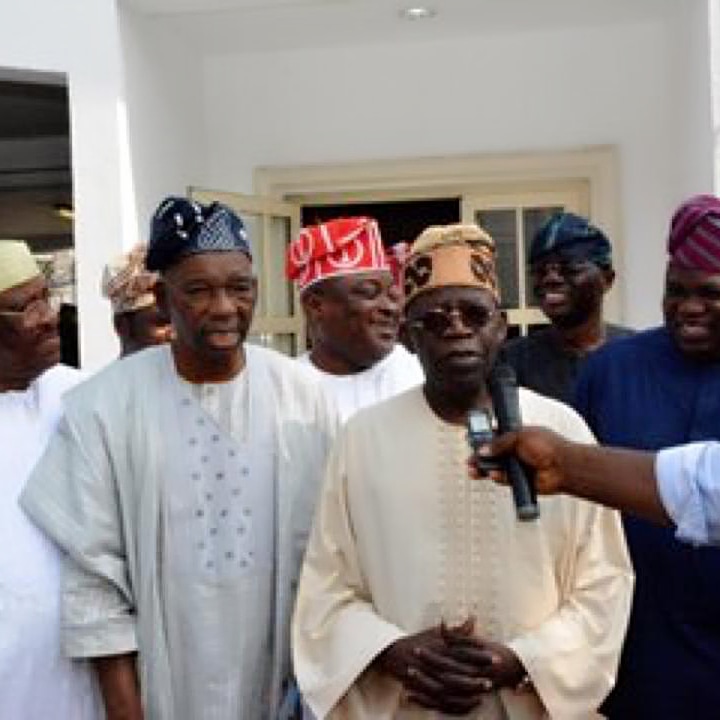
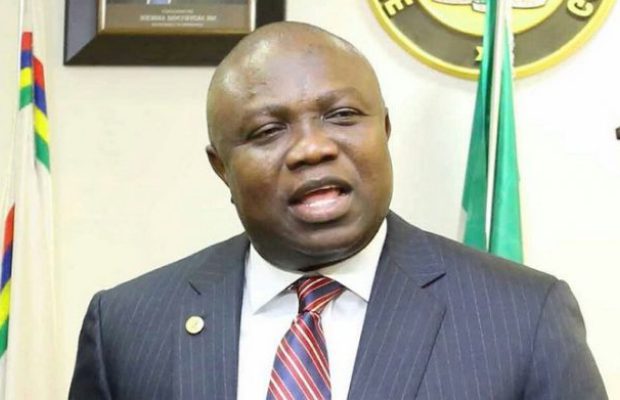
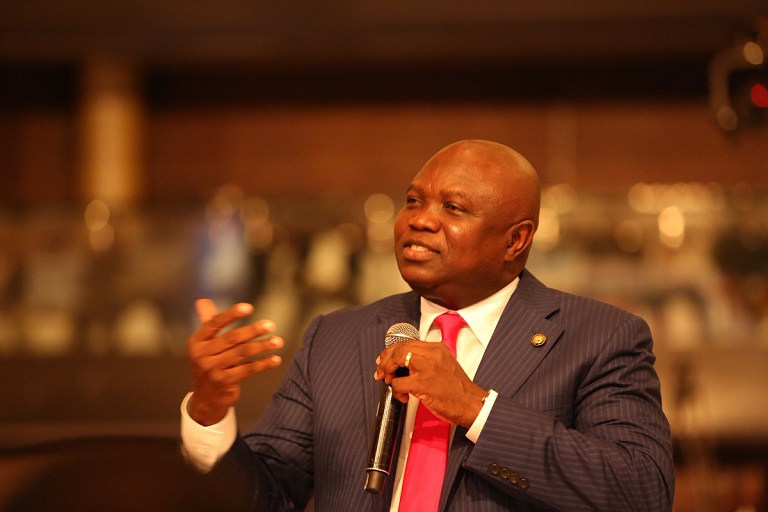

You must be logged in to post a comment Login